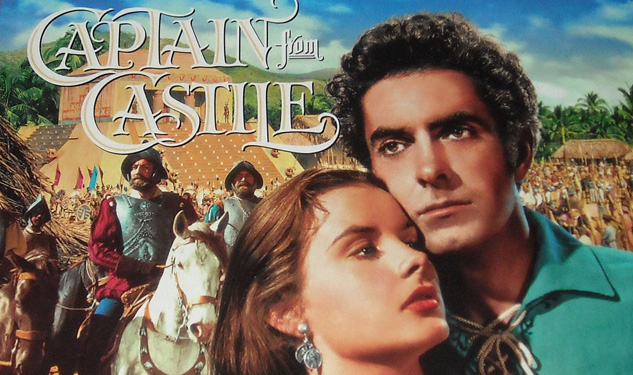
- Industry
Hernán Cortes Comes To The World Of Television
It’s probably the last great historical epic that has yet to be treated with the grandeur it deserves by cinema. The 1947 film Captain from Castile, briefly touched the issue with César Romero in a brief appearance as Hernán Cortes, but for some strange reason the adventure that changed America’s destiny forever hasn’t been touched by Hollywood. However, many have tried to do it for decades. One of the first was Dalton Trumbo, who was considered the best screenwriter in the industry during his time and a favorite among movie studios up until his decision not to testify against his colleagues during the McCarthy hearings, which sent him first to jail and then to exile. He wrote a script named Montezuma which lay dormant for 50 years, until early this year when it was given life once more by the one and only Steven Spielberg, who hired Oscar winner Steve Zallian to revive it, with Javier Bardem as the ideal actor to play Hernán Cortes.
Ridley Scott, who has repeatedly explored historical subjects in his films, confessed that the idea of narrating the bloody downfall of the Aztecs at the hand of a group of conquistadors driven by gold was tempting to him, but the weak reception he got with 1492 – his epic version of Christopher Columbus’ discovery of the Americas starring Gerard Depardieu – made him think otherwise. Ron Howard spent years attempting to tell the story in a project titled Conquest a reality. It was initially meant to be a movie, but when he realized that pulling off a feat of such epic proportions on the big screen would be difficult to finance, he managed to convince Showtime to transform the project into a television series. The script was to be written by Puerto Rican native José Rivera, nominated for the Academy Award for his work screenplay for The Motorcycle Diaries. However, the project has seen little movement since it’s announcement in July of 2012. Now it’s Martin Scorsese’s turn, and at the moment he seems to have the biggest chance of realizing his dream. He just closed a deal with HBO, the same company that produced Boardwalk Empire for five seasons, to develop Cortes, a show in which Benicio Del Toro will also participate. For now, the Puerto Rican will only act as executive producer, but some reports have suggested that he has ambitions of playing the bloodthirsty Spanish conquistador as well. Details are currently scarce on what the final plans are, but by simply researching the events that occurred in Mexico between 1519 and 1520 one should have a basic understanding of the story’s plot. Aside from Cortes, this would also have to include Moctezuma, the Aztec emperor who encouraged human sacrifice and was as cruel and ruthless as his rival when it came to subjugating rival villages. The plot wouldn’t likely also touch on Malinche, the native that played a fundamental role in the downfall of the Aztec empire by becoming an interpreter, consultant, and finally lover to Cortes, making her name a synonym of treason to the Mexican people.
The script would be written by Chris Gerolmo, who was nominated for a Golden Globe in 1989 for his work on Mississippi Burning, a film that in its time generated quite a bit of controversy, something that is likely to happen again as a result of this project. For ages, Cortes has brought up an ocean of mixed feelings. Even in Mexico monuments can be found honoring his memory, however, the latest generations in that country often think of him very negatively, blaming him of subjugating the native Mexican culture through bloodshed. Regardless of how he will be depicted in the series, it is inevitable that his sole presence bring forth mixed reactions.
It is important to note that before the arrival of shows like Game of Thrones or Breaking Bad, the idea of a show with no clear protagonist and antagonist would have been a no no for television executives. In the actual story, the confrontations between Cortes and Moctezuma there are heavy doses of violence, sex, and blood, as featured in many of today’s popular shows, enough to appeal to today’s audiences without having to stretch the story.
Gabriel Lerman

